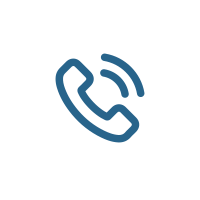Enterprise App
Enterprise Applications in Azure: A Comprehensive Guide
Technical Overview
Enterprise applications in Azure, often referred to as Enterprise Apps, are a cornerstone of modern identity and access management. They serve as the bridge between your organisation’s users and the myriad of software-as-a-service (SaaS) applications, on-premises systems, and custom-built solutions. By leveraging Azure’s robust identity platform, Enterprise Apps simplify authentication, authorisation, and governance for applications, whether they are hosted in the cloud or on-premises.
Architecture
At its core, an Enterprise App in Azure integrates with Entra ID (formerly Azure AD) to provide single sign-on (SSO), user provisioning, and conditional access policies. The architecture typically involves:
- Application Registration: Each app is registered in Entra ID, creating a unique identity for the app. This registration includes details such as redirect URIs, permissions, and certificates/keys for secure communication.
- Authentication Protocols: Enterprise Apps support modern authentication protocols like OAuth 2.0, OpenID Connect, and SAML, ensuring compatibility with a wide range of applications.
- Role-Based Access Control (RBAC): Permissions can be fine-tuned using RBAC, ensuring users only access what they need.
- Integration with Conditional Access: Policies can be applied to enforce multi-factor authentication (MFA), device compliance, or location-based restrictions.
Scalability
Azure Enterprise Apps are designed to scale with your organisation’s needs. Whether you’re managing a handful of apps or thousands, the platform provides tools to automate user provisioning, monitor app usage, and enforce security policies. Integration with Azure Monitor and Log Analytics ensures that administrators can track performance and detect anomalies at scale.
Data Processing
Enterprise Apps handle sensitive identity and access data, making security and compliance paramount. Data is encrypted both in transit and at rest, and administrators can configure data residency to meet regional compliance requirements. Additionally, integration with Microsoft Defender for Cloud provides advanced threat detection and response capabilities.
Integration Patterns
Enterprise Apps support a variety of integration patterns, including:
- SaaS Integration: Pre-built connectors for popular SaaS applications like Salesforce, ServiceNow, and Google Workspace.
- Custom Applications: Developers can use the Microsoft Authentication Library (MSAL) to integrate custom apps with Entra ID.
- On-Premises Applications: Legacy systems can be integrated using the Entra External Access (formerly Azure AD App Proxy).
Advanced Use Cases
Enterprise Apps go beyond basic authentication and authorisation. Advanced use cases include:
- Conditional Access with Continuous Access Evaluation: Dynamically enforce access policies based on real-time risk signals.
- Identity Governance: Automate access reviews and ensure compliance with regulatory requirements.
- Integration with Azure Logic Apps: Automate workflows triggered by user or application events.
Business Relevance
In today’s digital-first world, organisations are increasingly reliant on a diverse ecosystem of applications. Managing access to these applications while ensuring security and compliance is a significant challenge. Azure Enterprise Apps address this by providing:
- Enhanced Productivity: SSO reduces the need for multiple passwords, streamlining user access and improving productivity.
- Improved Security: Conditional access and MFA protect against unauthorised access and credential theft.
- Operational Efficiency: Automated user provisioning and deprovisioning reduce administrative overhead.
- Regulatory Compliance: Built-in tools help organisations meet standards like GDPR, HIPAA, and ISO 27001.
For businesses, the ability to securely and efficiently manage access to critical applications translates to reduced risk, lower costs, and a better user experience.
Best Practices
To maximise the value of Enterprise Apps, organisations should follow these best practices:
- Leverage Conditional Access: Implement policies that enforce MFA and restrict access based on device compliance or location.
- Monitor and Audit: Use Azure Monitor and Log Analytics to track app usage and detect anomalies.
- Automate User Lifecycle Management: Integrate with HR systems to automate user provisioning and deprovisioning.
- Regularly Review Permissions: Conduct periodic access reviews to ensure users only have access to what they need.
- Secure App Registrations: Use certificates instead of client secrets for app authentication and rotate keys regularly.
Relevant Industries
Enterprise Apps are versatile and can be applied across various industries:
- Healthcare: Secure access to electronic health records (EHR) systems and ensure compliance with HIPAA.
- Finance: Protect sensitive financial data and meet regulatory requirements like PCI DSS.
- Retail: Streamline access to point-of-sale (POS) systems and inventory management tools.
- Education: Provide students and staff with seamless access to learning management systems (LMS) and collaboration tools.
- Government: Ensure secure access to citizen services and comply with data sovereignty laws.
Adoption Insights
Currently, Enterprise Apps adoption stands at 0%. This presents a significant opportunity for organisations to get ahead of the curve by implementing a robust identity and access management solution. Early adopters can gain a competitive advantage by enhancing security, improving productivity, and ensuring compliance.
